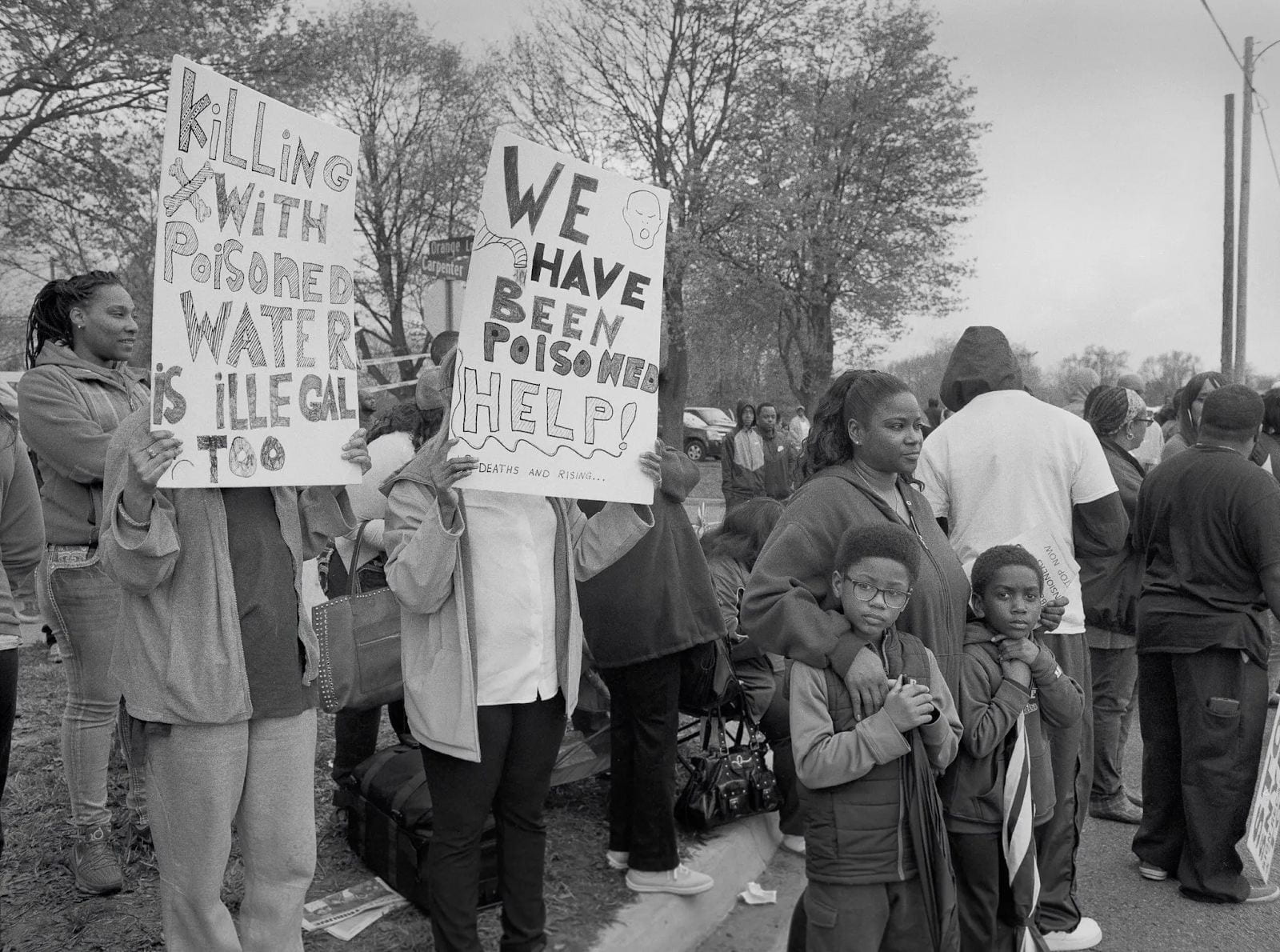The Dark Side of Environmentalism: Ecofascism and COVID-19

COVID-19 is not the earth’s way of healing itself, and eradicating humans is not the answer to the globe restoring itself. Yes, there is less air pollution in China, there are clearer rivers in Italy, carbon emissions have slowed, and the Bay Area is cleaner than it’s been in months. More trends around the world have led to a now perceived link between shelter-in-place orders and positive effects on the environment. This article discusses the problematic tropes of associating social tragedy with environmental benefit and the consequences of “we are the virus” in dire times like this.
As the world is reeling from the coronavirus pandemic, newspapers, false reports, and social media have brought rise to ecofascist tropes linking COVID-19 to “Earth’s vaccine”. Just this month, Common Dreams, a progressive news website, referred to COVID-19 as “nature’s response to human transgression” (Klare, 2020). Last week, The Guardian, a British daily newspaper, published an article discussing the link between coronavirus and the ongoing climate crisis, including a quote from the UN’s environment chief, Inger Anderson, stating that the virus is “nature sending us a message” (Carrington, 2020). Psychology Today, a US magazine, published an article earlier this month wherein the author refers to coronavirus as “a gift” and mother nature “turning it up a notch” after failure on humans to listen to earth’s other warnings(e.g., deadly hurricanes, floods, and droughts) (Wetzler, 2020).
Tweets like the one below have gone viral over the past month. Social media’s influence has held a stranglehold on the general public’s perception of COVID-19. This tweet is just one example, but statements like these influence hundreds of thousands of minds around the globe.
Wow… Earth is recovering
– Air pollution is slowing down
– Water pollution is clearing up
– Natural wildlife returning homeCoronavirus is Earth’s vaccine
We’re the virus
— Tom (@ThomasSchuIz) March 17, 2020
Tweet from Twitter user, 2020.
Misleading reports and photos of wildlife returning to rivers in Italy have also started to gain traction. The tweet below garnered 1 million likes and over 280 thousand retweets in the span of just two weeks. Perpetuating false statements are just as harmful when it comes to shaping how viewers view coronavirus and it’s impacts on the earth.
Here’s an unexpected side effect of the pandemic – the water’s flowing through the canals of Venice is clear for the first time in forever. The fish are visible, the swans returned. pic.twitter.com/2egMGhJs7f
— Kaveri 🇮🇳 (@ikaveri) March 16, 2020
Tweet from Twitter user, 2020.
The problem with attributing environmental benefit to COVID-19 is that it implies a mass loss of human life is worth it or even necessary for the sake of the environment. “We are the virus” statements assume humanity and the planet are mutually exclusive. The dangers that lie in this are reminiscent of environmental movements that have in the past advocated for the reduction of non-white, non-western populations (Garcia, 2020) and, unfortunately, ecofascism.
Ecofascism is nothing short of the marriage between environmentalism and white supremacy (Manavis, 2018). Ecofascists strive to achieve a pure environmental sphere and a pure social sphere (Adler-Bell, 2019). The common denominator in both of these scenarios is that they do not include people of color. To an ecofascist, in order to achieve both environmental and social purity, people of color and immigrants must sacrifice themselves for the good of the planet. This falls right in line with xenophobia and eugenics, neither of which are new to the environmental movement.
The creation and rise of ecofascism actually began in the early 1900s, peaked in the 1970s during the birth of the modern environmental movement, and is now rising again with the current administration’s stance on immigration, environmental policy, and the ever-present effects of climate change. The founder of California’s first redwood and wild buffalo conservation organizations was also the founder of ecofascism (Darby, 2019). He was the president of the Bronx Zoo and responsible for kidnapping a Mbuti man and putting him on display in the zoo with apes. This white man, Madison Grant, believed the Nordic race was in decline and that his generation had the authority to decide which lives should be preserved and others discarded. In 1906 he authored The Passing of the Great Race, or The Racial Basis of European History , which would later become Hitler’s personal bible. He advocated for the incredibly racist Quota Act of 1921 and the Immigration Restriction Act of 1924 (Sparrow, 2019). Madison Grant introduced eugenics as central to the environmental movement, and the rise of ecofascism continued to grow. He is still so influential today that Anders Breivik, the Norwegian extremist who massacred 69 youth at a Labor Party Camp, made a tribute to Grant’s racial theory in his manifesto (Purdy, 2015).
In 1968, Paul Eirich, an entomologist at Stanford, published Population Bomb, in which he argued that ecological destruction and the majority of social problems on earth could be attributed to overpopulation and sterilization as the solution (Mann, 2018). Eirich’s publication and the growing environmental movement of the 1970s led to the first Earth Day in which 20 million people attended (Sparrow, 2019). Today, his theory has lost some of its stranglehold mainly due to slowed population growth, but his influence is still felt.
Modern ecofascists today draw on Eirich’s theory of overpopulation and believe that it puts a strain on natural resources and that, post-climate change, masses of people will be a threat to social stability (Darby, 2019). The only way to prevent this from happening in the future is to dramatically reduce the human population. As Pentti Linkola, a radical ecologist and ecofascist puts it: “When the lifeboat is full, those who hate life will try to load it with more people and sink the lot. Those who love and respect life will take the ship’s axe and sever the extra hands that cling to the sides of the boat” (Linkola, 1989). Today, this looks like white nationalism and xenophobia. Climate change is already one of the biggest drivers of immigration. Some climate change researchers argue that climate change has had a part in wars like the civil war in Syria, leading to mass migrations of people (Darby, 2019). Like many white nationalists, ecofascists believe that allowing immigrants into the United States is suicide. A popular meme among the far right is “save trees, not refugees” (Stern, 2019). Ecofascist beliefs like these are a major part of why Patrick Crusius murdered 22 people and injured more than a dozen in El Paso, Texas, in August 2019. Before the massacre, Crusius posted to Facebook the attack was “in response to a Hispanic invasion of Texas.” An entire page of Crusius’ manifesto is dedicated to theories originally founded by Eirich, discussing demographic shift and overpopulation. In his manifesto, “An Inconvenient Truth,” he wrote, “If we can get rid of enough people, then our way of life can be more sustainable.” Crusiusalso discussed the “decimation of the environment” and corporations contributions to overharvesting. Crusius was inspired by the Christchurch, New Zealand, mosque shooter, Brenton Harrison Tarrant (Darby, 2019). Tarrant is a self-proclaimed ecofasisct who, in his own manifesto, stated that “there is no nationalism without environmentalism.” He massacred 51 people in May 2019 (Barton, Smee, 2019).
White supremacy is clearly not new to the environmental movement. When we promote the idea that social tragedies are a must in order to save the environment, we repeat a dangerous trope that has and will continue to cost many lives, many of whom are minorities. When one decides that population reduction is the most beneficial way to save the planet and minimize our impact, one has to choose who needs to be reduced – and it has consistently been minorities, immigrants, and marginalized peoples. It may not seem harmful to post misleading pictures of swans in Italy or call COVID-19 earth’s ‘vaccine’, but it contains an underlying tone very reminiscent of a devastating, racist, and violent sector of environmentalism.
We have already seen the consequences of scapegoating certain racial groups during COVID-19. Hate crimes against Asian Americans have now averaged to about 100 per day across the United States. Over 1,000 hate crimes have been reported since the start of the pandemic (Rep. Judy Chu, 2020). Labeling coronavirus a “Chinese virus” reinforces xenophobia and racism towards Asian people. When Patrick Crusius referred to “our way of life” in the El Paso shooting, he was referring to an all-white way of life, a way that would diminish multiculturalism and stop the demographic shift that has supposedly expedited the environmental crisis (Klee, 2020).
On top of the violence and genocide associated with ecofacsism, ecofascist tropes routinely disregard who is really at fault for the environmental crisis. Since 1988, only 100 companies have been responsible for 71% of the world’s greenhouse gas emissions, and more than half of these can be traced to just 25 companies, including Exxon, Shell, BP, and Chevron (Riley, 2017). These companies are and will be responsible for catastrophic species extinction and global food scarcity over the next 30 years. Several billion people will have to and are already paying the price for a small number of state and private corporations to make record-breaking profits off oil. What’s even worse is that these corporations knew their potential impact on the global environment as far back as 1965, before the climate crisis (Taylor and Watts, 2019). Ecofasicists place the blame for climate change on population demographics rather than corporate groups and capitalism. Ecofasicists ignore the intertwining relationship between capitalist profits and environmental devastation. In a capitalist society, the consumption of goods is the center of everything (Reyes, 2019). The irrationality of it all is that it comes even at the expense of the state’s people and their wellbeing. Capitalism uses resources until it must transition or find new sources. From an environmentalist perspective, the resources are fossil fuels, and the consequence is environmental devastation and climate change. Ecofascism places this blame on the individual rather than the system as a whole. There are grave flaws with mindsets like this. Ecofascism has no place within the environmental movement. It is harmful and destructive to all human beings with an emphasis on those who identify as marginalized and non-white.
Now, this isn’t to say that every person who tweets or minimizes the impact of COVID-19 has the intention of being an ecofascist and is aware of the history and serious flaws within this mindset. It’s just to say that where there are unfathomable human tragedies, a dark, ecofascist side of environmentalism has always coexisted with it that ignores the overarching systemic issues that play a role. Until we call out the injustices in attributing environmental benefits to mass human loss, ecofascist tropes, unknowingly or not, are bound to rise and resurface in the midst of human calamities. The next time you see a post or tweet about the environmental benefits of shelter-in-place mandates, be careful and think about the potential and underlying repercussions of views like these on a broader, global, scale. Ecofascism does not have a place in the environmental movement, and well-meaning or not, articles and tweets with underlying ecofascist tropes should be scrutinized and called out.
Works Cited
Adler-Bell, Sam. “Why White Supremacists Are Hooked on Green Living.” The New Republic, 24 Sept. 2019, newrepublic.com/article/154971/rise-ecofascism-history-white-nationalism-environmental-preservation-immigration.
Carrington, Damian. “Coronavirus: ‘Nature Is Sending Us a Message’, Says UN Environment Chief.” The Guardian, Guardian News and Media, 25 Mar. 2020, www.theguardian.com/world/2020/mar/25/coronavirus-nature-is-sending-us-a-message-says-un-environment-chief.
Darby, Luke. “What Is Eco-Fascism, the Ideology Behind Attacks in El Paso and Christchurch?” GQ, 2019, www.gq.com/story/what-is-eco-fascism.
Garcia, Sierra. “’We’re the Virus’: The Pandemic Is Bringing out Environmentalism’s Dark Side.” Grist, Grist, 30 Mar. 2020, grist.org/climate/were-the-virus-the-pandemic-is-bringing-out-environmentalisms-dark-side/.
Goldman-Wetzler, Jennifer. “The Gifts of the Coronavirus.” Psychology Today, Sussex Publishers, 12 Mar. 2020, www.psychologytoday.com/us/blog/achieving-conflict-freedom/202003/the-gifts-the-coronavirus.
Kelley, Alexandra. “Attacks on Asian Americans Skyrocket to 100 per Day amidst Coronavirus Pandemic.” TheHill, 1 Apr. 2020, thehill.com/changing-america/respect/equality/490373-attacks-on-asian-americans-at-about-100-per-day-due-to.
Klare, Michael T. “Is the Covid-19 Pandemic Mother Nature’s Response to Human Transgression?” Common Dreams, 2 Apr. 2020, www.commondreams.org/views/2020/04/02/covid-19-pandemic-mother-natures-response-human-transgression.
Klee, Miles, and Mel. “Ecofascism Unites Far-Left Environmentalism and Far-Right Racism.” MEL Magazine, 24 Mar. 2020, melmagazine.com/en-us/story/ecofascism-unites-far-left-environmentalism-and-far-right-racism.
Linkola, Pentti. “Humanflood.” Pentti Linkola Fansite, 1989, www.penttilinkola.com/pentti_linkola/ecofascism_writings/humanflood/.
Manavis, Sarah. “Eco-Fascism: The Ideology Marrying Environmentalism and White Supremacy Thriving Online.” Eco-Fascism: The Ideology Marrying Environmentalism and White Supremacy Thriving Online, 21 Sept. 2018, www.newstatesman.com/science-tech/social-media/2018/09/eco-fascism-ideology-marrying-environmentalism-and-white-supremacy.
Mann, Charles C. “The Book That Incited a Worldwide Fear of Overpopulation.” Smithsonian.com, Smithsonian Institution, 1 Jan. 2018, www.smithsonianmag.com/innovation/book-incited-worldwide-fear-overpopulation-180967499/.
Martin, Lisa, and Ben Smee. “What Do We Know about the Christchurch Attack Suspect?” The Guardian, Guardian News and Media, 15 Mar. 2019, www.theguardian.com/world/2019/mar/15/rightwing-extremist-wrote-manifesto-before-livestreaming-christchurch-shooting.
Purdy, Jedediah, et al. “Environmentalism’s Racist History.” The New Yorker, 2015, www.newyorker.com/news/news-desk/environmentalisms-racist-history.
Reyes, Farid. “Capitalism Is Responsible for Climate Change.” Left Voice, 2019, www.leftvoice.org/capitalism-is-responsible-for-climate-change.
Riley, Tess. “Just 100 Companies Responsible for 71% of Global Emissions, Study Says.” The Guardian, Guardian News and Media, 10 July 2017, www.theguardian.com/sustainable-business/2017/jul/10/100-fossil-fuel-companies-investors-responsible-71-global-emissions-cdp-study-climate-change.
Sparrow, Jeff. “Eco-Fascists and the Ugly Fight for ‘Our Way of Life’ as the Environment Disintegrates | Jeff Sparrow.” The Guardian, Guardian News and Media, 29 Nov. 2019, www.theguardian.com/environment/2019/nov/30/eco-fascists-and-the-ugly-fight-for-our-way-of-life-as-the-environment-disintegrates.
Stern, Alexandra Minna. “White Nationalists’ Extreme Solution to the Coming Environmental Apocalypse.” The Conversation, 23 Aug. 2019, theconversation.com/white-nationalists-extreme-solution-to-the-coming-environmental-apocalypse-121532.
Taylor, Matthew, and Jonathan Watts. “Revealed: the 20 Firms behind a Third of All Carbon Emissions.” The Guardian, Guardian News and Media, 9 Oct. 2019, www.theguardian.com/environment/2019/oct/09/revealed-20-firms-third-carbon-emissions.
Taylor, Matthew, and Jonathan Watts. “Revealed: the 20 Firms behind a Third of All Carbon Emissions.” The Guardian, Guardian News and Media, 9 Oct. 2019, www.theguardian.com/environment/2019/oct/09/revealed-20-firms-third-carbon-emissions.


